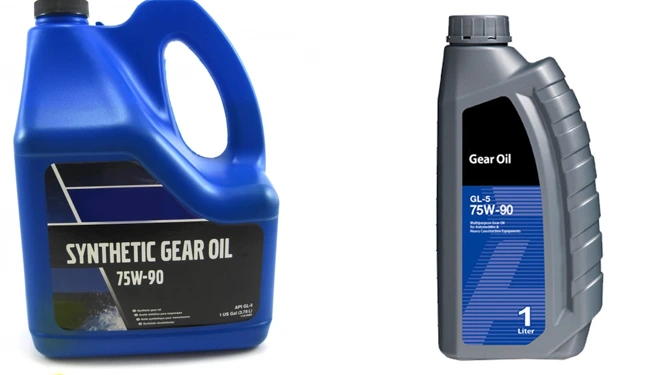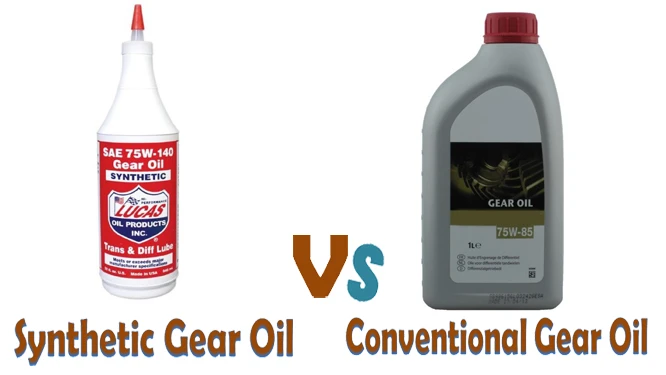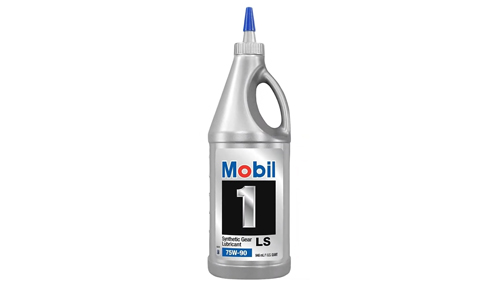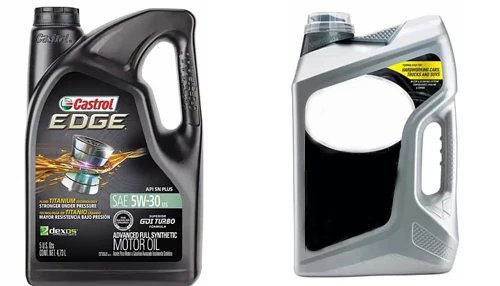Physical Address
304 North Cardinal St.
Dorchester Center, MA 02124
Physical Address
304 North Cardinal St.
Dorchester Center, MA 02124

You take your car to the mechanic for an oil change and they ask what type of oil you want. Do you prefer synthetic or conventional gear oil? It is really common for many people that they do not know the differences.
When it comes to choosing the right gear oil for your car, there are two main types to choose from: synthetic and conventional. Synthetic gear oils are made from artificially created chemicals, while conventional gear oils are derived from crude oil.
So, in the debate of synthetic vs conventional gear oil, where do you stand? In this blog post, we’ll discuss the key differences between these gear oils so that you can make an educated choice about which is right for your car.

Both conventional and synthetic gear oils have their benefits and drawbacks, and the type that is right for your car will depend on a number of factors. Here is a side-by-side comparison of them to help you pick as per your requirement.
Synthetic oil is man-made, while conventional oil is a natural product. Synthetic oil is produced in a laboratory by combining hydrocarbons to create a product with desired properties, such as a high viscosity index or resistance to breakdown at high temperatures.
Conventional oil, on the other hand, is extracted from petroleum deposits in the ground. It undergoes a refining process to remove impurities and then may be blended with other oils to improve its performance.
The main advantage of synthetic oil over its conventional is its improved performance in extreme temperatures. It is designed to flow more easily at low temperatures, which means that it can reach critical engine parts more quickly during a cold start.
Also, synthetic oil has a lower tendency to break down at high temperatures, making it ideal for use in hot climates or during extended periods of stop-and-go driving. Also, synthetic oil can help to improve engine performance and longevity, making it a great option for drivers who want the best possible protection for their engines.
Synthetic oil typically costs more than conventional oil upfront, but because it lasts longer, it’s actually more cost-effective in the long run. In fact, synthetic oil can often last for up to 5,000 miles before it needs to be changed, while conventional oil needs to be changed every 3,000 miles. Thus, over the course of a year, you’ll save money by using synthetic oil.
Synthetic oil is engineered to perform better than conventional oil, and this is especially true in cold weather conditions. Conventional oil typically contains impurities that can clog engine parts and reduce efficiency, but synthetic oil is refined to remove these impurities.
On top of that, synthetic oil has a higher viscosity, which means it flows more easily at lower temperatures. Due to this, there is less likelihood of engine damage or wear in cold weather conditions. For these reasons, many car manufacturers recommend using synthetic oil in colder climates.
Gear efficiency is a major concern for many industries. Every ounce of power that a gear system can conserve means large financial savings. In order to increase gear efficiency, it is important to use the right type of gear oil. Synthetic gear oils are designed to provide better performance than conventional oils, and they can help to increase efficiency in a number of ways.
Synthetic oils have a lower viscosity, which means that they flow more easily and reduce friction. Also, synthetic oils are more stable at high temperatures, so they can prevent excessive heat build-up within the gear system. Last but not the least, synthetic oils are more resistant to degradation, so they will maintain their performance over a longer period of time.
The advantages of synthetic gear oils over conventional gear oils are that they have a longer service life as they can withstand higher temperatures and loads. They also provide better protection to the gears and have a lower tendency to form deposits.
The additives present in synthetic gear oil are also different from those found in conventional gear oil. Synthetic gear oils typically contain viscosity index improvers, extreme pressure additives, and anti-wear additives, which all serve to enhance the performance of the oil.
These additives help to keep the oil flowing smoothly and prevent it from breaking down under high temperatures or heavy loads. Thus, synthetic gear oil can provide superior protection for your gears, making it an ideal choice for use in high-performance applications.


Differential gear oil is a type of lubricant that is specifically designed for use in automotive Differential gears. The oil helps to keep the gears cool and reduces friction, making it an essential part of the vehicle’s drivetrain.
There are three main types of differential gear oil: conventional, synthetic, and semi-synthetic. Each type has its own benefits and drawbacks, so it’s important to choose the right one for your vehicle.
Conventional differential gear oil is the most affordable option and can be used in most vehicles. However, it does not provide as much protection as synthetic or semi-synthetic oils, so it may need to be replaced more often.
Synthetic differential gear oil is costlier than conventional oil, but it provides better protection for the gears. It also resists breakdowns at high temperatures, ideal for use in performance vehicles.
Semi-synthetic differential gear oil is a compromise between conventional and synthetic oils. It’s more affordable than synthetic oil but still offers some of the same benefits, such as improved protection and resistance to breakdowns.
This question doesn’t have a simple answer, because it depends on the specific application. In general, thicker gear oil is better for high-load applications and provides a consistent level of lubrication, while thinner gear oil is better for reducing friction and operating temperatures.
Then again, there are also some drawbacks to using thicker gear oil. It can be more difficult to pump and may not circulate as easily, which can lead to increased wear on gears.
Thicker gear oil also tends to be more expensive and may not be compatible with all types of seals. Ultimately, the best choice of gear oil will depend on the needs of the specific application.

Mixing conventional and synthetic oils will result in a drop in the quality of the synthetic oil. The two oils have different chemical compositions, which means that they will separate over time. This will cause the synthetic oil to break down and lose its performance benefits.
Aside from that, mixing the two oils can actually damage your engine, as the different chemicals can interact in unexpected ways. Therefore, it’s always best to use the same type of oil in your engine, regardless of whether it’s mineral or synthetic.
There are pros and cons to both synthetic and conventional gear oils, but ultimately the best choice for your car depends on its make and model along with your driving habits. It all comes down to personal preference and budget.
If you want the best protection for your gear, then go with synthetic gear oil.
But if you’re looking for a more economical option, then stick with conventional gear oil. Whichever you choose, just make sure you change your gears’ oil regularly to keep them running smoothly. Thanks for reading.
Last update on 2026-02-16 / Affiliate links / Images from Amazon Product Advertising API